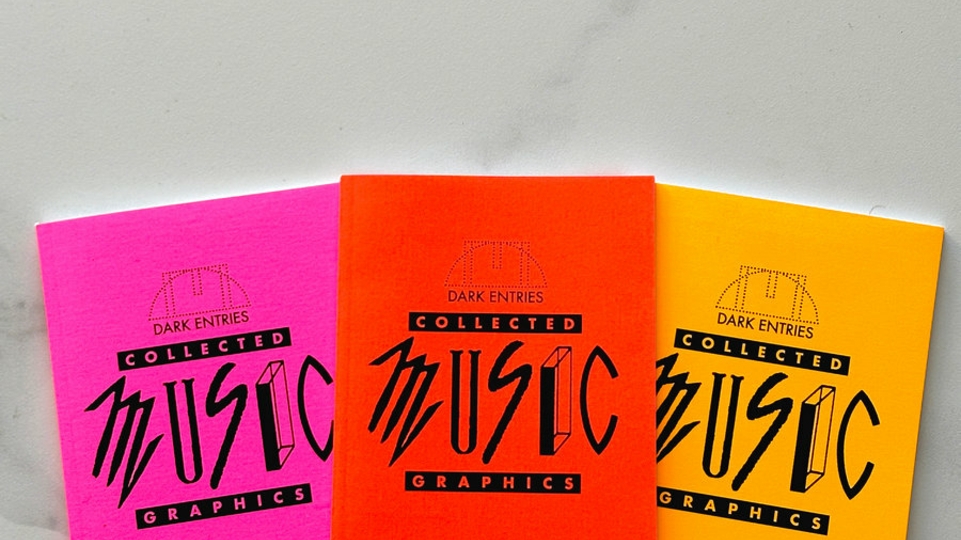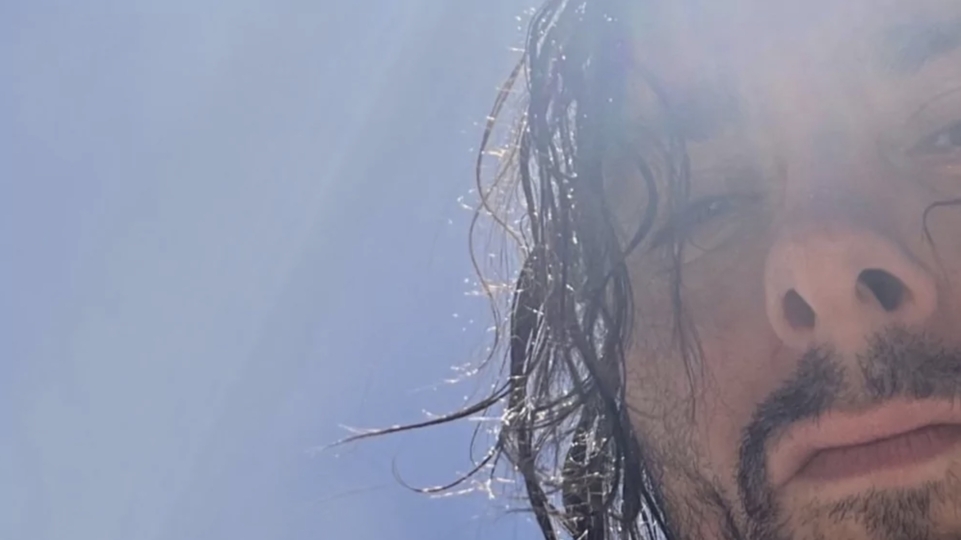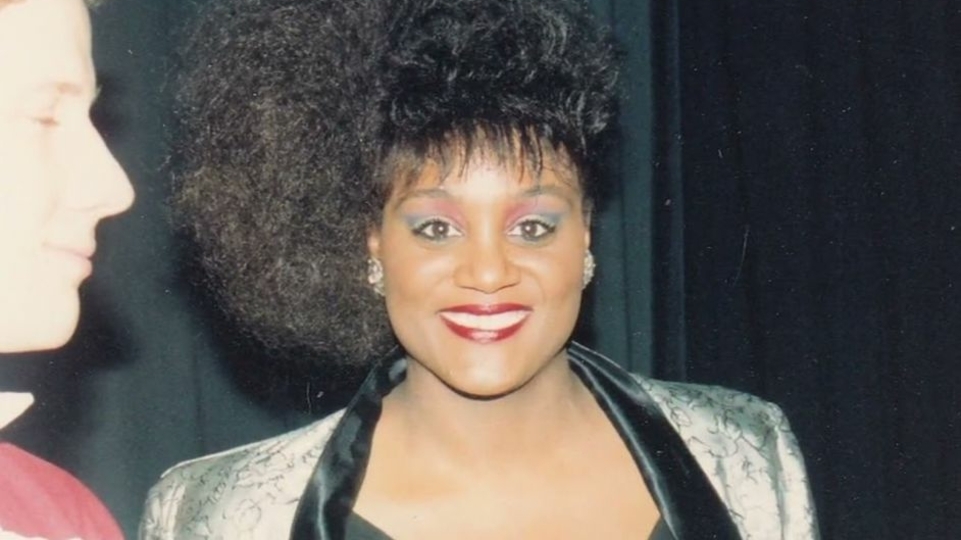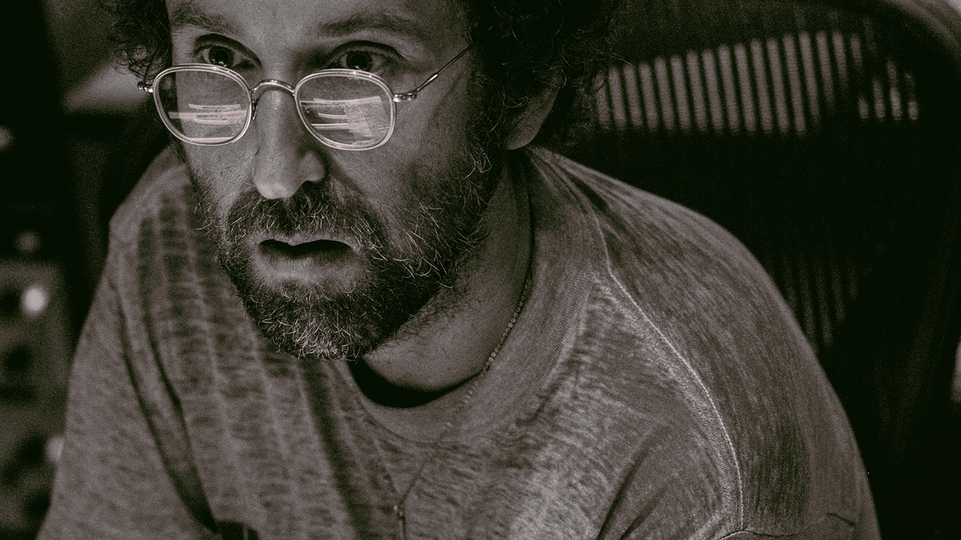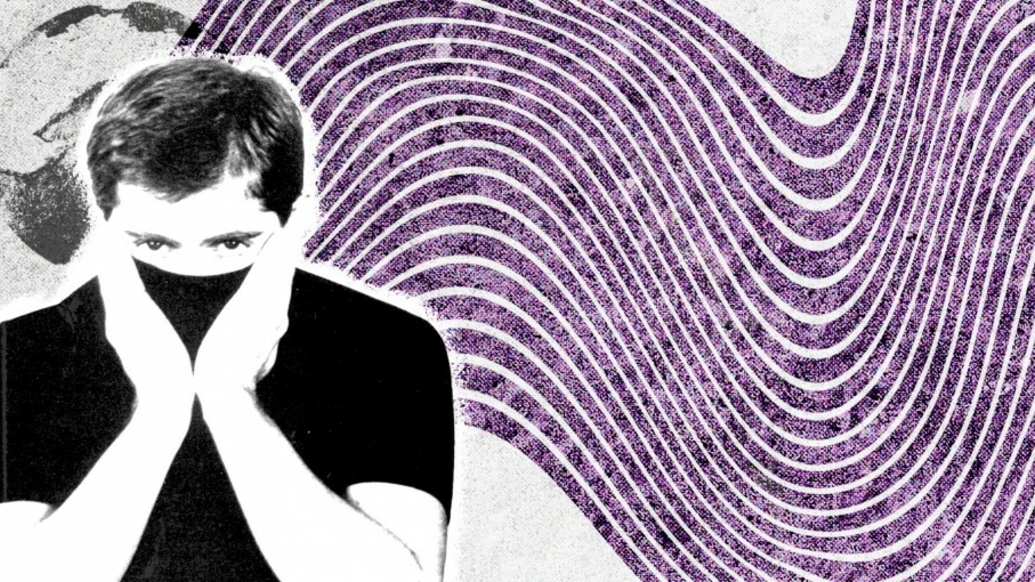
Patrick Cowley, the gay genius of Hi-NRG
Before his death in 1982, Patrick Cowley produced some of the American gay underground's most thrilling dance music, from chart-topping disco to radical club tracks. In recent years, San Francisco record label Dark Entries has devoted itself to released Cowley's lost art, from porn soundtracks to original albums and erotic journals. As the label celebrates what would have been his 69th birthday with a new compilation, DJ Mag discovers how Cowley is finally being recognised as an icon
There’s a notorious scene in 1980 thriller Cruising that might be the best fictional time capsule we have of a wanton, unfettered gay dance floor just before AIDS hit. Director William Friedkin was still swimming in the success of The Exorcist when he decided to take on the prescient tale of a serial killer haunting New York’s BDSM community, leaving tortured and often unclaimed bodies in his wake. Al Pacino plays the cop who goes undercover to catch the masked murderer, discovering new dimensions of his sexuality along the way.
To catch a gay killer in those days, you had to start on the dance floor, the epicenter of the fellowship. As Pacino slips on a black tank top and studded cuffs and snakes into the Ramrod bar for reconnaissance, you feel Friedkin’s camera reveling in this secret world of burning stares, flashing chaps, gyrating trios, and loaded slings. Not all gay-centric discos were like this, of course: Liza Minelli would soon be doing the cha-cha under a giant coke spoon at Studio 54, and Paradise Garage focused more on musical innovation than masculine amalgamations. But thousands of Ramrod-like kink dens, backroom booths, adult bookstores, and bathhouses existed across the US — Cockpits, Anvils, Eagles, Badlands, Baracks, Rawhides, and Hungry Hole Saloons. This was certainly, however, the first time one appeared in the shopping mall multiplex.
In the dim light of the bar, the film’s colour palette drains to blue and black. Pacino is tempted to the dance floor by a fetching lad who promptly hands him a rag soaked in amyl nitrate, aka poppers, a sexual stimulant. As Pacino puts the rag to his face for a hearty sniff, the scene suddenly bursts into full colour, and an American flag on the wall strobes with electric lights. It’s a perfect analogue to the effects of the drug, and a nod at the country’s lightning-rod relationship to its homosexual citizens who, ten years after the Stonewall Riots launched the gay liberation movement, were basically sexual outlaws hiding in plain sight.
Suddenly, Pacino’s limbs are flailing and head shakes in a blur. He’s into it. Like, really into it. The only hitch is that the scene is soundtracked all wrong. Instead of a swelling, hypnotic climax, we get a cheesy, upbeat rock number called ‘Heat of the Moment’ by Willy de Ville (not, alas, a pseudonym invented especially for the movie). It’s not exactly terrible, but it’s definitely not what any self-respecting sex dungeon of the time would pump.
In fact, by 1980, there was a very specific type of music tailored to accompany such scenes of debauchery: one that grew from the protest and experimental music scenes of the ’60s, melded elements of psychedelic and prog-rock to disco; meant to enhance the excitement of man-on-man cruising, illicit sex, and chemical stimulants through electronic means.
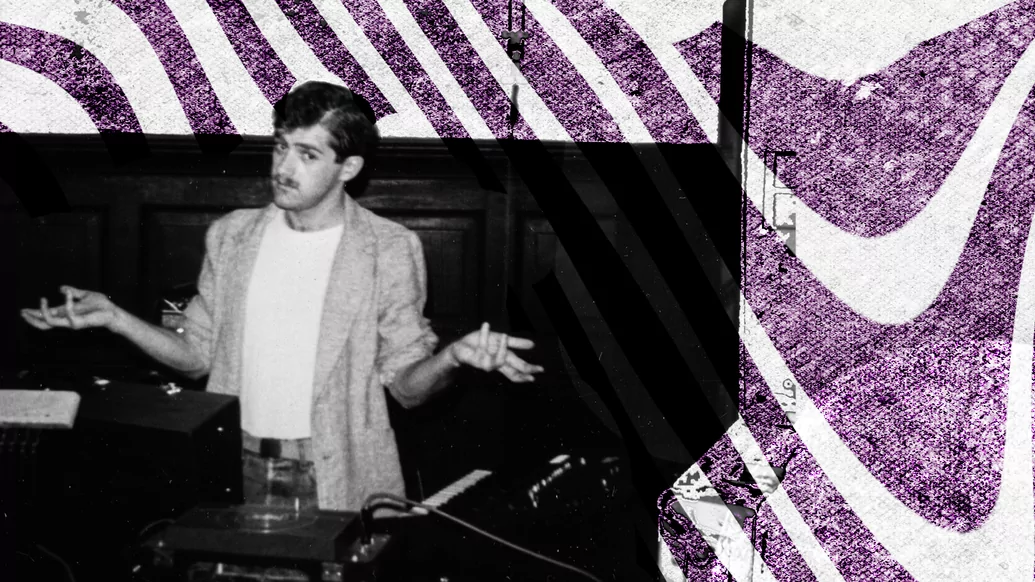

This music was Hi-NRG, and its American pioneer was a young man named Patrick Cowley. Cowley was both immersed in the world described by Cruising and one of its orchestrators. For years he was regarded as a curiosity in the history of electronic music, a sort of cross between quiet gay avant-disco originator Arthur Russell and showy Euro-disco evangelist Giorgio Moroder. Cowley’s enthusiastic embrace of the sexual possibilities of electronic music, particularly the homosexual ones, probably contributed to his relative obscurity, despite having an enormous influence on the global dance music scene with his range of productions, hand-crafted tracks, and trademark “San Francisco Sound”.
In the past decade, however, a resurgence of interest in the gay roots of contemporary dance music have led to an outpouring of Cowley tributes and record releases. These releases, mostly on San Francisco-based Dark Entries label, include compilations of Cowley’s porn soundtracks, psychedelic experiments with muse Candida Royale, and multicultural post-punk jams as part of the duo Catholic with Jorge Socarrás.
Now, with Mechanical Fantasy Box, and a reprint of Cowley’s voracious sex journal, Dark Entries has released some of Cowley’s most wiggy and forthright compositions. All of these records demonstrate an obsession with pushing the boundaries of electronic music into a space of personal exploration and communal fulfillment. Cowley is now viewed as a seminal American artist who shaped contemporary dance music into its present form.
By 1980, Cowley had already contributed to several breakthrough hits, adding otherworldly synthesizer sounds to gender-fluid disco singer Sylvester’s ‘Step II’ album, which contained classic barnstormers ‘(You Make Me Feel) Mighty Real’ and ‘Dance (Disco Heat)’, as well as writing space disco-y ‘Stars’ and sensual, burbling ‘I Need Somebody to Love Tonight’ for the flamboyant diva. (These last two were published through Cowley’s aptly named Masculine Music company.) Cowley’s breathtaking 15-minute mega-mix of Donna Summer’s ‘I Feel Love’, made in 1977 and passed hand to hand among discerning DJs, established him as an electronic visionary who could seemingly do anything with a home studio.
In the next two years, before his death of what was later recognized as AIDS at the age of 32, Cowley’s productions defined the gay nightlife musical experience — mixing the mystical with the carnal, in an outpouring of recordings that encompassed disco’s ecstatic heyday and its dystopian flameout. Deathless hits like ‘Do You Wanna Funk’, ‘Menergy’, ‘Get a Little’, and ‘Right On Target’ can still be heard on dance floors almost 40 years later. The label he co-founded, Megatone, ensured the San Francisco Sound dominated clubs in the early ’80s, while his candid final album, ‘Mind Warp’, composed while he was dying, stands as one of the artistic achievements of the AIDS crisis.
Patrick Joseph Cowley was born on October 19, 1950 in Buffalo, New York, and raised in an observant Catholic home. Although he fought hard to throw off that religion’s yoke, he recognized that it helped form his ritualistic sexual and musical aesthetic. In the late ’60s, he protested the Vietnam War with his best friend Theresa McGinley and, after Stonewall, came out to her. After playing drums in several local rock bands and studying English at the University at Buffalo — then an unlikely hotbed of revolutionary avant-garde composers, including Julius Eastman, Terry Riley, and Lukas Foss — he moved with McGinley to San Francisco at the age of 21. They settled into a tiny apartment on Oak Street facing the Panhandle Park.
Cowley, intrigued by recent innovations in synthesizers, enrolled in City College’s music program and became one of the first students in the school’s Electronic Music Lab, where professor and countercultural figure Gerald Mueller exposed him to the Moog and the Buchla, as well as crude, handmade synthesizers. Cowley also threw himself onto the gay scene, partying and taking drugs regularly, with occasional bouts of employment to keep him up-to-date on the latest musical gear and substances. A petite, quick-witted man with puppy-dog eyes and a soft moustache, Cowley didn’t exactly look the part of a gay Don Juan — he rejected the interchangeable male “clone” look of the times — but he possessed the libido of a rutting colt, and the self-confidence to ride out every night until well after dawn.
His music during this early period was psychedelic and experimental in a pop mode — Mueller recalled being impressed by a pitch-perfect version of ‘Whiter Shade of Pale’ coming from one of Cowley’s synthesizers — and his tiny studio became filled with the equipment and eight-track recorders he would use throughout his career. “I used to stand there and watch over Patrick’s shoulder while he worked on these electronic boxes and patchboards, and I just had no idea what he might be doing,” singer Lauren Carter recalled in author David Diebold’s ‘Tribal Rites: The San Francisco Dance Music Phenomenon, 1978-1988’, which chronicles Cowley’s influence. “But now that I’m into electronic music myself, I realize he didn’t have sequencers and he didn’t have midi... he was doing it absolutely the hardest way possible, by hand.”
With a reputation as a workaholic, Cowley would invite friends over to smoke a joint and compose music all day, and then hit the sex clubs and bathhouses late at night, where psychedelic funk, cosmic rock, and orchestral Philly soul combined in a genre known as sleaze music. This porous sound set the stage for early electronic pop compositions like Moroder’s version of ‘Knights in White Satin’ to seep into willing, well-lubricated ears.

By 1977, the music had sped up considerably with Brainstorm’s ‘Loving is Really My Game’, and electronics had completely pervaded dance floors with Summer’s ‘I Feel Love’, both fulfilling a new demand for immersive, dopamine-flooding tracks that matched the blizzard of amphetamines and cocaine blowing through the clubs. Soon, the arpeggiated synths and frantic tempos of Hi-NRG — although it wasn’t called that until much later — reigned in the gay clubs and the European charts, complementing Italo disco and early electro and influencing groups like New Order and the Pet Shop Boys, until house music saturated the late ’80s.
Cowley’s own compositions took a more uptempo turn in the mid-’70s, as he absorbed and reworked the new vibe into his own staccato eroticism. While working the lights at City Disco, he met Sylvester, a longtime performer looking for a new sound that matched the times. Cowley played Sylvester his latest tracks, they clicked, and both their careers ignited, with chart success, European tours, press attention, and guaranteed gigs from San Francisco’s Trocadero Transfer club to London’s Heaven. For a brief, hyper-productive moment, Cowley was the dance floor wizard, releasing three albums and writing dozens of tracks. Special Hi-NRG DJ charts were created to help index the records he and his imitators were churning out.
Then, a mysterious illness caused him to stop touring and enter the hospital. While trying to recover, he married his experimental and accessible sides on the dark yet danceable Mind Warp, with its lyrics about authoritarian surveillance and spinal taps. But as one of the first people to have AIDS, he was doomed, and his quicksilver intelligence turned to bitterness. During a tribute night at the San Francisco Galleria near the end of his life, he reportedly sat in a wheelchair upstairs, looking at the dancers below with tears running down his cheeks. “Those stupid queens, don't they know?” he said.
For Dark Entries label head Josh Cheon, releasing Cowley’s work has happened in waves of serendipity, one “Eureka!” moment leading to the next. Cheon, one of the major revivalists of ’80s minimal synth and dark wave acts, first encountered Cowley in 2006, when a lover played him Mind Warp while rolling a joint on the album jacket. He moved to San Francisco a year later and joined the Honey Soundsystem DJ collective, which would go on to revitalise the global gay underground by looking back to rare disco and ahead to contemporary techno.
Beginning when disco Svengali John Hedges, the owner of Cowley’s Megatone label, invited Cheon and Honey Soundsystem members over to clear out his record collection before he retired to Palm Springs, a series of connections and coincidences has led Cheon to unearth stacks of reel-to-reel Cowley demos and memorabilia. Dark Entries has now released seven collections of Cowley material, each release accompanied by a special event or party that almost magically leads Cheon to more discoveries. “I don’t want to say that I’m haunted by Patrick,” Cheon told me, “but something keeps leading me to more of his work. I’d like to think it’s because he trusts me in some way to do it right.”
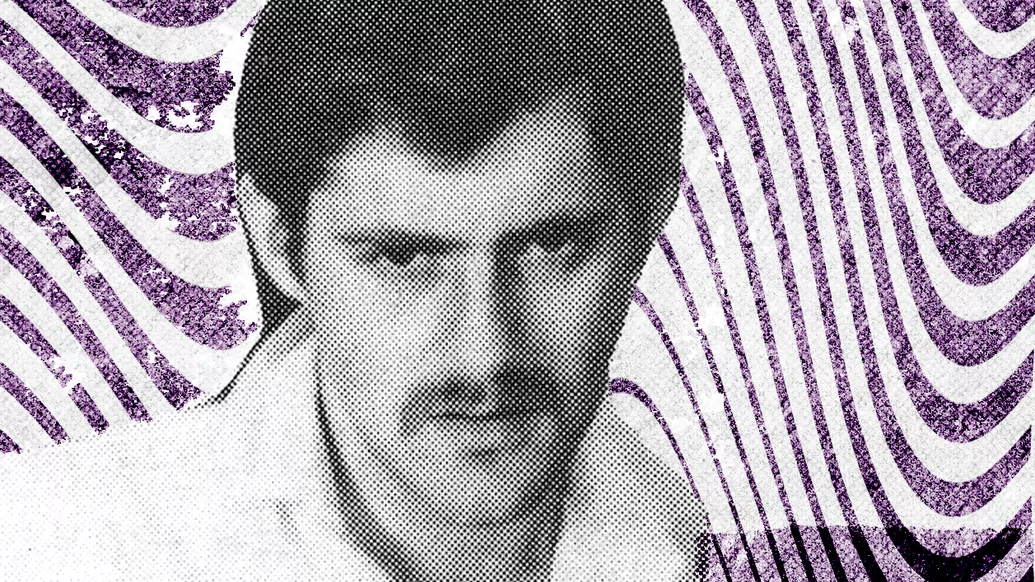

With ‘Mechanical Fantasy Box’, Cheon’s streak of Cowley luck was intense, as were his sleuthing skills. “Now that we’ve released all of Patrick’s Fox Studio porn soundtracks, I was looking for a direction for the next release — we still have so much material,” Cheon told me. “So I asked Patrick’s former roommate and recording partner, Maurice Tani, if I could come over his house and borrow some of the tapes he did with Patrick, to do one more digital transfer and get some ideas. Now, these tapes are giant 10-inch reels, really low quality mixtapes from the ’70s — there were useful because you can fit two-and-a-half hours of music on each side. But they’re double-sided, so there’s bleed-through and lots of noise. I just happened to ask, ‘Hey Maurice, do you happen to have the original generation of these tapes, the ones these were dubbed from?’ And it turned out that he had a whole bookshelf of original reel-to-reels in his attic! I was crawling around up there with my phone light on, just gasping. Everything was in Patrick’s handwriting. It was crazy.”
Cheon transferred the originals — four-track tapes, from which he had to sync each track by hand — so there was a Cowley-like element of artistic interpretation in trying to guess what each song should sound like. Among the selections for ‘Mechanical Fantasy Box’ are ‘Lumber Jacks in Heat’, an 11-and-a-half-minute shuffling electronic fugue that deteriorates in hallucinatory directions, and an early, fantastic example of Cowley’s Hi-NRG to come, called ‘Right Here, Right Now’.
And then there’s the journal. From August 1974 to June 1980, Cowley kept an incredibly explicit sex journal of his comings and goings, a surprisingly poetic and eyeball-searing document of trick after trick — there must be hundreds — written in a unique style that adds another dimension to Cowley’s aesthetic world. It begins with “Lee on the top bunk... ticklin’ the ol’ duodenum,” soon leading into “a rugged blonde bulldog beard” telling Cowley, “You’re like a bear lickin’ honey.” Those are probably the least scandalous (and least acrobatic) things that can be quoted here, but throughout the journal’s addictively readable pages, Cowley repeatedly uses the slippery phrase “mechanical fantasy box,” sometimes referring to sex clubs, other times referring to lovers, sometimes summoning an unreachable sexual ideal.
For the release of one of Cowley’s porn soundtrack collections, Afternooners, Cheon rented out a theater to play the films the music was composed for, augmented with people from Cowley’s life performing or speaking a few words. “I contacted Teresa [McGinley], Patrick’s old roommate who kind of took care of him on his deathbed, to perform. And she said, ‘I have a better idea. I have Patrick’s sex journal.’ I was astounded. It turned out that Patrick had entrusted her with it so his family would never see it. She said, ‘I don't want to email about this, meet me in person!’ It was like we were in a spy novel. We met at a cafe and she brought out the journal — it was a black German notebook, wrapped in silk with a gold stamp. I couldn’t believe it. I started crying reading it. She said, ‘Instead of me taking this to my grave, I want you to have it.’”
The journal is faithfully reproduced, including doodles and misspellings, with the release. Also included are abstract erotic illustrations by Berlin artist Gwenaël Rattke and reproductions of ads for the nightclubs, sex clubs, bathhouses, restaurants, and shops that Cowley mentions, along with a helpful map, for any time-travelers looking to get laid a few hundred times.
“Creating narratives with sound, rhythm, words, and composition is how Patrick transubstantiated his personal erotic experiences and fantasies into a Hi-NRG soundtrack for the club culture of the ’70s and ’80s,” McGinley writes in her clear-eyed introduction to ‘Mechanical Fantasy Box’. “The amyl-fueled crowds sweating on dance floors made his influence on culture incarnate. This was part of the musical score of the era.”
Pre-order 'Mechanical Fantasy Box' via Dark Entries here

